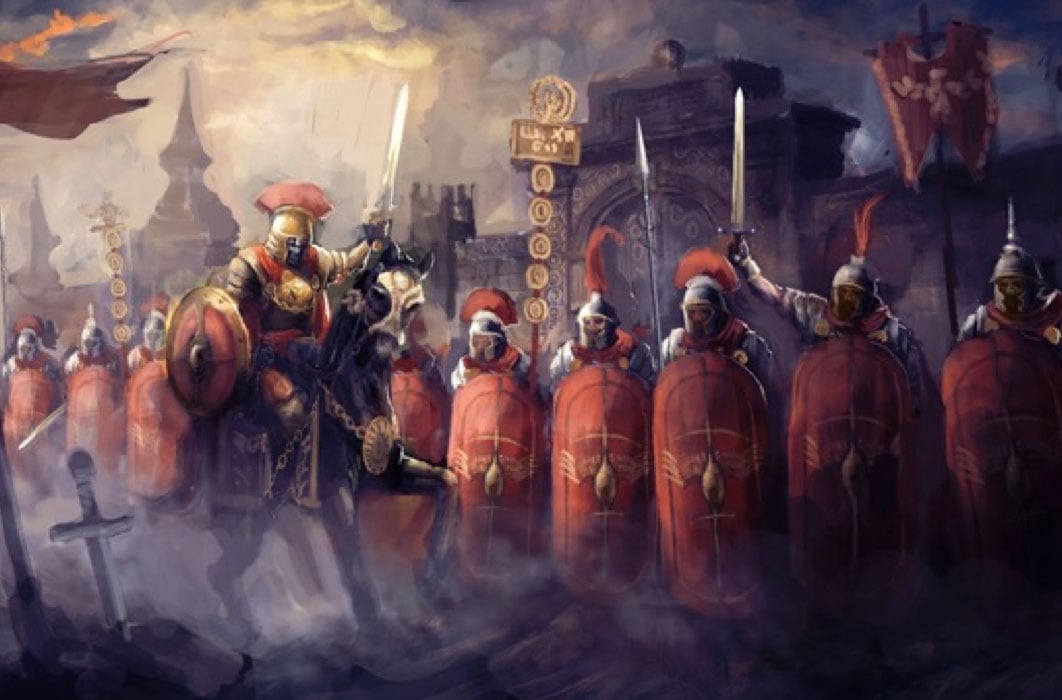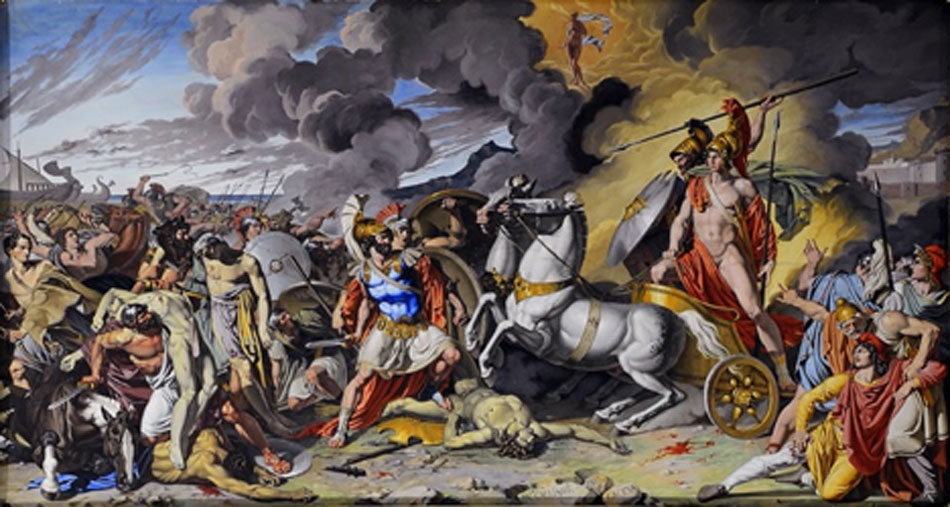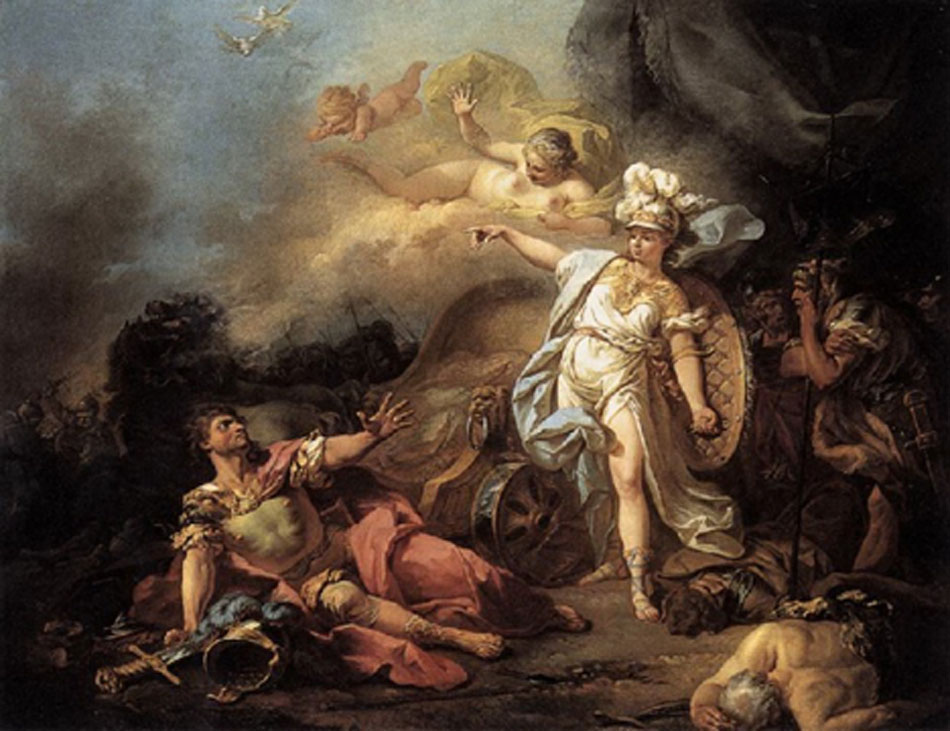
Roman Mars vs Greek Ares as the God of War
In the ancient battle of Thurii in 282 BC, between Rome and the Greek colony of Tarentum, the Romans noticed a youth of extraordinary height marching in front of them and performing miracles of bravery. It was only afterwards, when no candidate for the crown of honor showed himself to claim it, that the soldiers realized and became convinced that it was the war god Mars himself who had come to the rescue of his people. So Mars Roman god of war, triumphed over Ares, Greek god of war.

Mars Resting by Diego Velázquez (1640) Museo del Prado (Public Domain)
Attila and the Sword of Mars
Hundreds of years later, Attila the Hun became one of the most feared enemies of the western and eastern Roman Empires. Although his conquests extended far and wide, it was perhaps the rumor that Attila was said to possess the sword of Mars which made him especially frightening for the Romans. Legend has it that one of the shepherds of the Huns saw a heifer which had wounded herself in the foot. The shepherd curiously followed the track of the heifer’s blood until he discovered, among the tall grass, the point of an ancient sword sticking out from the soil. He then dug up the ancient sword and presented it to Attila, who claimed this sword as the sword of Mars himself. Attila accepted this sword as a celestial favor and as the rightful possessor of the sword of Mars, asserted his divine claim to the dominion of the earth.

Protected by Ares, Achilles in his chariot rides over the body of the slain Hector by Antonio Raffaele Calliano (1815) (CC BY-SA 4.0)
Although under the influence of Greek culture in the ancient Roman society Mars was identified with the Greek war god Ares, the character and dignity of Mars was fundamentally different from that of his Greek counterpart. Apart from being considered as more level-headed than the more disruptive Ares, Mars was also seen as a more virtuous figure by the more martial-oriented Romans. Mars’ position in the ancient Roman pantheon was also more formidable as he was a part of the Archaic Triad along with Jupiter and Quirinus, an early god of the Roman state who was likely to be a Sabine god of war and had no Greek equivalent.
Ares, Greek God of War
To understand Mars as a god in his own right, it is useful to remind oneself of his more tempestuous Greek counterpart so that one can contrast the two figures. Ares is the god of war, as well as the spirit of brutal warfare, in the ancient Greek religion. However, Ares was never very popular with the people in ancient Greece, his fellow gods and even his own family. The fact that Ares was the son of Zeus and Hera did not help him in his position among the Olympian gods. A passage in the Iliad tells us that Zeus, his own father, refers to Ares as the god that he hates the most, “To me you are the most hateful of all the gods who hold Olympus. Forever quarreling is dear to your heart, wars and battles”. The reason for this general distaste is that Ares specifically represented the brutal aspects of warfare - he is cruel and bloodthirsty, with a penchant of starting offensive wars for nothing more than the sheer love of combat. This reputation resulted in little respect which sprung mainly from fear instead of love or admiration.

The Combat of Ares and Athena by Jacques-Louis David (1771 ) Louvre. (Public Domain)




